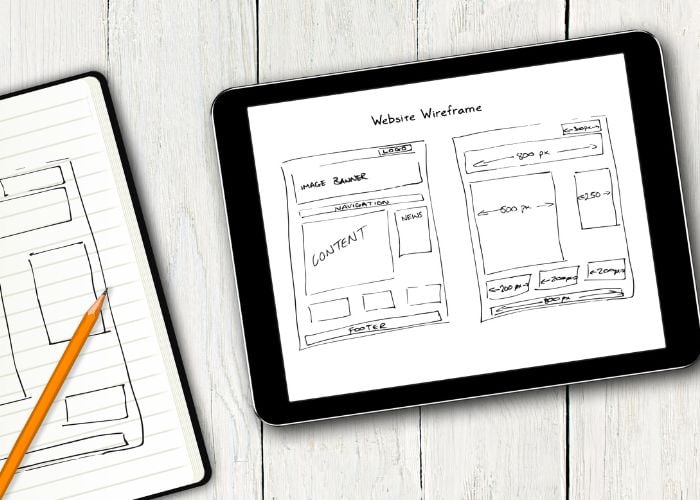
One Web Page Design or Multiple Page Website?
One Web Page or Multi Page Website?
People often grapple with the decision of whether to opt for a one page website (web page design) or embrace the traditional multi page approach.
Each design philosophy carries its own set of advantages and challenges, impacting factors such as user experience, search engine optimisation (SEO), and overall business credibility.
As business owners navigate this decision-making process, it becomes crucial to weigh the benefits and drawbacks of both options against their specific goals and target audience.
In this article, we delve into the nuances of one page versus multi-page website design, exploring the considerations that can shape a business's online presence and influence its success.
One Page Website or Web Page Design
Pros
1. The Simplicity of a one page website
One page websites offer a simple and streamlined user experience, with all content accessible on a single page. This can be especially effective for businesses with a concise message or limited offerings.
2. Engagement
The linear storytelling approach of one page websites can engage visitors more effectively, guiding them through a narrative journey and encouraging action.
3. Mobile-Friendly
One page designs are inherently mobile-friendly, providing a seamless experience across different devices and screen sizes.
Cons
1. Limited Room for Content on a one page website
One of the main drawbacks of single page websites is the limited space for content. If you have a diverse range of products/services or need to convey detailed information, a single page may not be sufficient.
2. SEO Challenges
One page websites may face challenges in ranking for a wide range of keywords and topics, as there's only one URL to optimise. This can limit your visibility in search engine results.
3. Scalability
As your business expands, adding new content or features to a one page website can be challenging without disrupting the design and user experience.

Multi Page Website
Pros
Content Organisation
Multi page websites allow you to organise your content into distinct sections, making it easier for visitors to find relevant information. This can enhance user experience and reduce bounce rates.
SEO Flexibility
With multiple pages, you have more opportunities to target specific keywords and topics. This improves your chances of ranking higher in search engine results pages (SERPs). Each page can be optimised individually for SEO, maximising your visibility online.
Scalability
As your business grows and evolves, a multi page website offers scalability. This Allows you to add new pages and content without disrupting the overall structure or user experience.
Cons
Complexity
Managing a multi page website can be more complex and time-consuming. It requires careful planning and organisation to maintain coherence across different pages. Although ultimately is better for onpage SEO
Navigation Challenges
With multiple pages, navigation becomes more critical. Complex menus and navigation structures can confuse users. And potentially lead to higher bounce rates if not implemented effectively.
Slower Loading Times
Multi page websites may have slower loading times compared to one page designs. Especially if each page contains heavy multimedia elements or large images.
Ultimately, the decision between a one page and multi page website depends on your business's specific needs, goals, and target audience.
While one page websites offer simplicity and engagement benefits, multi-page websites provide greater flexibility, scalability, and probably most importantly SEO opportunities.
Given these points, Consider consulting with a web design expert. It's very important to determine the best approach for your business.
